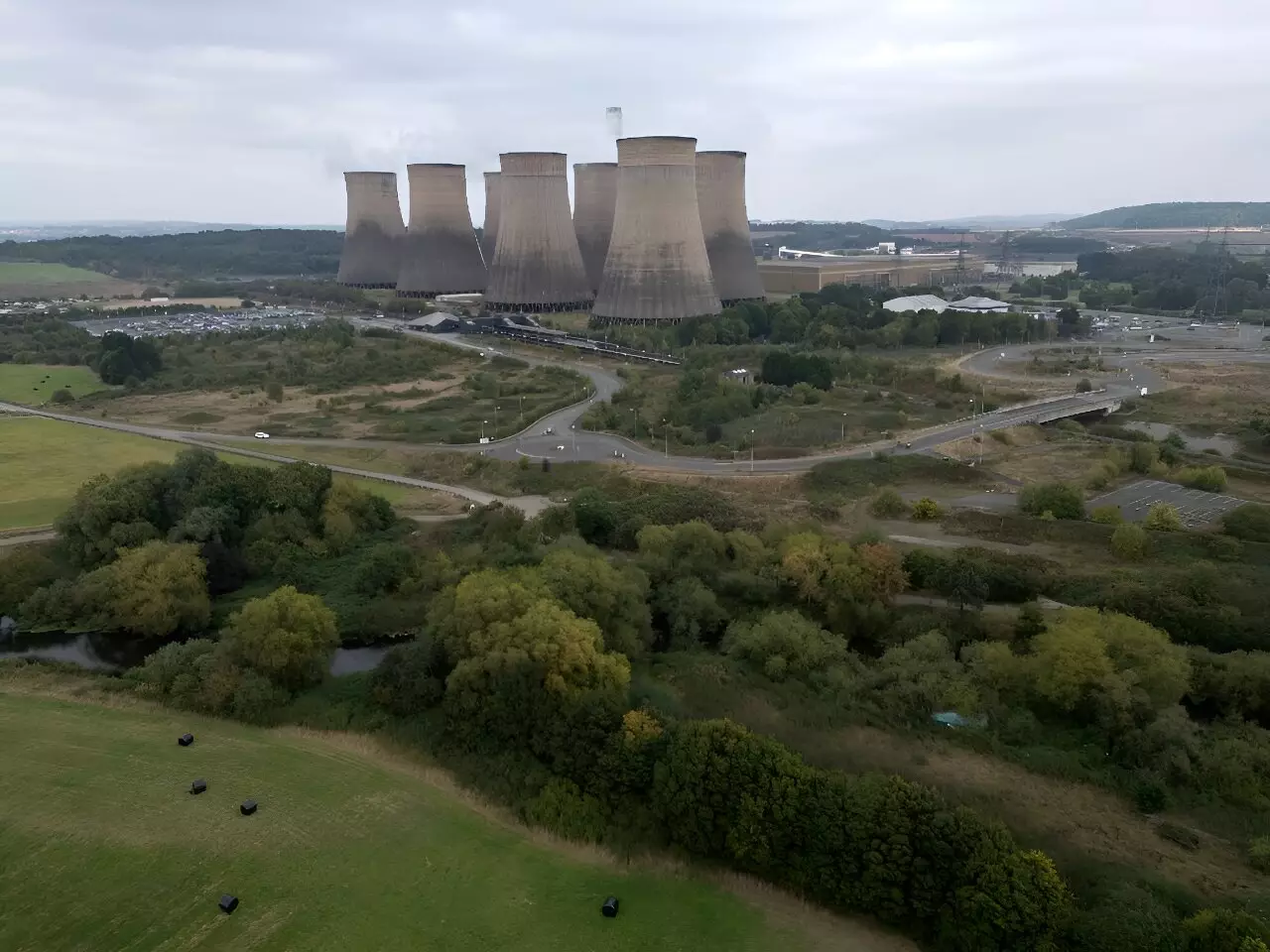

The United Kingdom is marking a historic transition in its energy landscape by closing the last coal-fired power station, Ratcliffe-on-Soar, located in central England. This move positions the UK as the first country among the G7 to eliminate its dependency on coal for electricity generation. With implications reaching beyond energy production, this closure signifies the UK’s commitment to achieving a decarbonized electricity system by 2030 and attaining carbon neutrality by 2050.
Energy Minister Michael Shanks underscored that while the abandonment of coal represents the conclusion of an era, it also signals the dawn of a new phase in the UK energy sector, marked by the creation of sustainable job opportunities. The decommissioning of Ratcliffe-on-Soar will take approximately two years, during which Uniper, the plant’s owner, will transition its workforce of 350 employees and contractors either into new roles or through planned redundancies. The envisioned carbon-free technology and energy hub slated to replace the coal plant indicates a strategic pivot towards innovative energy solutions, aligning with broader environmental ambitions.
The closure of Ratcliffe-on-Soar symbolizes the culmination of an extensive history, as the UK ends a reliance on coal that has lasted for 140 years. Unlike other G7 nations, which have set varying timelines for phasing out coal—Italy aiming for 2024 and Germany for 2038—the UK’s decisive action sets a benchmark for global energy policy reform.
The reliance on coal has deeply influenced Britain’s industrial economy. It fueled the Industrial Revolution, establishing the country as a dominant global economic power. By the late 20th century, however, a series of government interventions aimed at reducing pollution significantly decreased coal’s contribution to the nation’s energy supply. From commanding 70% of the electricity mix in the 1980s, coal’s share plummeted to just 1% by last year. This transformation showcases the changing attitudes towards coal and the urgent need for sustainable practices.
Tony Bosworth, an energy campaigner at Friends of the Earth, reflects on this shift, emphasizing coal’s historical precedent while advocating for a transition from natural gas and a robust development of the UK’s vast renewable energy resources. This transitional period is not merely an endpoint but a stepping stone towards a more sustainable energy economy capable of delivering both environmental and economic benefits.
As of 2023, the electricity generation landscape in the UK indicates a promising yet complex future. Natural gas accounts for a third of total electricity production, while wind energy provides about 25%. Nuclear power contributes an additional 13%, showcasing a diverse energy mix that is transitioning to lower carbon emissions. The newly elected Labour government has actively pledged to further decarbonize the energy framework, focusing on public investment in offshore and tidal energy as well as nuclear power—essential to boosting the country’s renewable capabilities.
Ratcliffe-on-Soar’s recent usage patterns highlight the limited role of coal in today’s energy demands. Previously capable of powering two million homes, it has been relegated to moments of peak electricity demand, and its final coal delivery exemplified how its operational relevance had diminished significantly. This shift from coal to greener alternatives is not only necessary but also reflects wider societal changes prioritizing sustainability and environmental responsibility.
The UK’s decision to officially close its last coal-fired power plant serves as more than a mere national milestone; it symbolizes a profound commitment to reshaping energy policies worldwide. As other nations look to the UK’s example, the accompanying challenges of phasing out oil and gas remain. The journey towards a truly sustainable energy future is filled with challenges, but the groundwork laid by such pivotal moments as the closure of Ratcliffe-on-Soar uncovers a path for subsequent energy reforms. By prioritizing renewable energy investments and fostering job creation, the UK not only positions itself as a leader in the energy transition but also sets forth a model for countries around the globe to emulate, reinforcing the notion that a sustainable future is within reach.
In the world of pharmaceuticals, innovation often hinges on finding new compounds that can lead…
In the heart of the Amazon basin, drastic climate changes present an alarming reality that…
Air fryers have rapidly surged in popularity, captivating home cooks and culinary enthusiasts alike. When…
In an era where technology and social media reign, the importance of sleep often takes…
In an era where environmental consciousness is paramount, the maritime industry has long been scrutinized…
Radionuclides, often relegated to discussions surrounding nuclear energy and radioactive waste, have far-ranging implications for…
This website uses cookies.